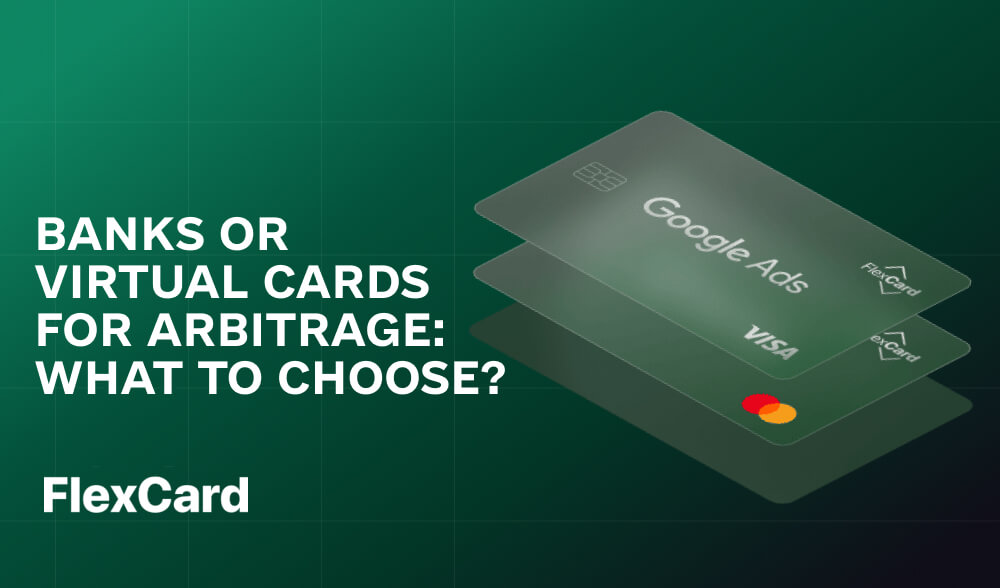Don't miss interesting news

The financial side of traffic arbitrage plays a key role. The choice of payment instruments determines not only the convenience of work, but also the security of accounts. In 2025, arbitrageurs use two main options: traditional banks and virtual cards. Let’s analyze the pros and cons of each and find out which option is better for arbitrage.
Plusses:
Minuses:
Pluses:
Minuses:
If you are in the business of traffic arbitrage, using virtual cards (e.g. FlexCard) is the optimal solution. They allow you to work securely, avoid mass blocking and scale your business without being tied to a single bank.
The choice between banks and virtual cards depends on your goals. For stable, long-term financial transactions, bank cards are fine. However, for arbitrageurs who run ads on Facebook, TikTok and Google, virtual cards remain the best solution.